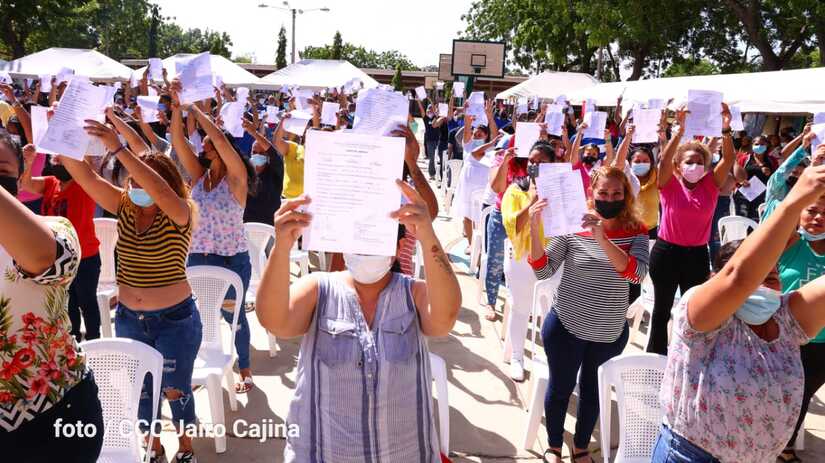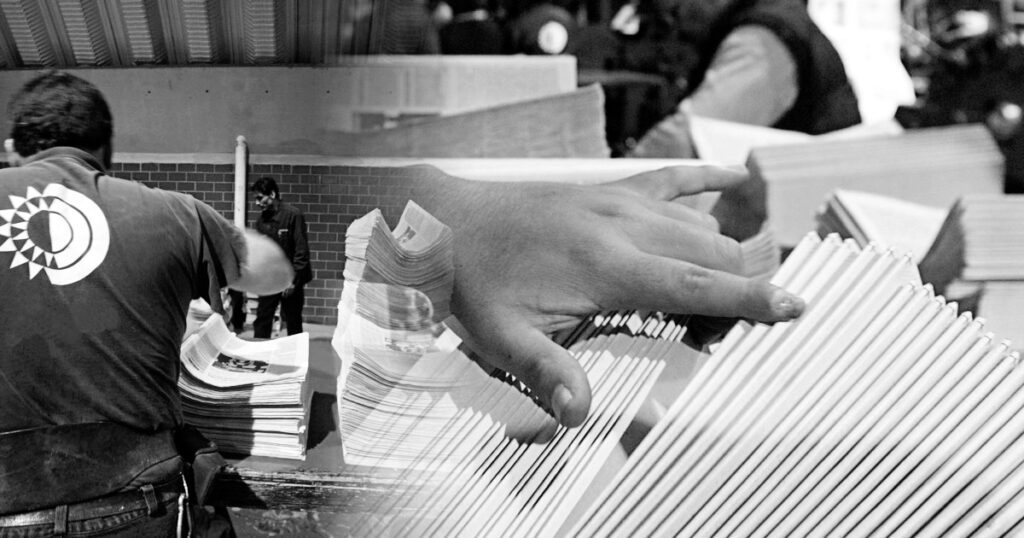The Daniel Ortega regime has released more than 20,000 common prisoners from 2018 to date, according to the record of the press releases of the Penitentiary System and the regime’s propaganda media, while it intensified the de facto police state and increased the number of political prisoners in 2022. At the end of the year, considered one of the worst in terms of political persecution and kidnappings, more than 235 prisoners of conscience are in Nicaraguan prisons.
During 2022, Ortega, through the Ministry of the Interior (Migob), ordered the release of more than 4,500 common inmates under family cohabitation, without knowing whether the process established by prison regulations to release a person was complied with.
This implies that a sentence execution judge assesses each case, considering the rights of the victims, explains lawyer Wendy Flores and a member of the Nicaragua Nunca Más Human Rights Collective.
The massive releases of common criminals in the last five years have been recorded in this way: 1,955 people in 2018; 6979 in 2019; 8,920 in 2020 -the year of the pandemic-; 4,100 in 2021 and 4,700 in 2022. It is evident that the year with the most releases was during the health crisis, the real impact of which was made invisible by the Government. In the last five years the regime has released more than 26,654 common prisoners.
In 2022 there were four releases: 1,000 inmates in April, 1,300 in July, 1,100 in October and more than 1,300 this Friday, December 23. With this and the permanence of political prisoners in prison, the Ortega regime continues to accumulate more human rights violations and persists in its non-compliance with the observations and recommendations of international human rights organizations -including the Inter-American Court-, Flores pointed out.
In 2021 and 2022 Ortega has not released a single prisoner of conscience, and rather, he promoted repressive escalations against the opposition and leaders of various sectors of society, including the Catholic Church, which for the first time in five years of sociopolitical crisis, He also has political prisoners. Eleven religious are in prison, among them, Bishop Rolando Álvarez with a house for jail; nine accused of alleged crimes of conspiracy and propagation of false news and two convicted of common crimes.
This Christmas, we demand the freedom of Cristiana Chamorro, Pedro Joaquín Chamorro, Juan Sebastián Chamorro, Juan Lorenzo Holmann Chamorro and the 235 political prisoners. They are all innocent. The dictatorship must annul the spurious trials so that everyone can recover their rights.
— Carlos F. Chamorro (@cefeche) December 24, 2022
Call of Monsignor Silvio Báez for political prisoners
This Friday, December 23, the auxiliary bishop, Monsignor Silvio Báez, exiled in 2019 due to the persecution of the Ortega regime, pleaded with the Ortega government to release the political prisoners.
“Ease the pain of your families and the country a little! Yourselves, give your heart a little peace!” Said the prelate through his Twitter account. This same cry has been shared by human rights organizations and family members who have called for a “Christmas without political prisoners” for the fifth consecutive year.
On Christmas Eve, when we celebrate humanity and the tenderness of God, I ask, I beg, I plead with those who govern in #Nicaragua: Free the political prisoners! Ease the pain of your families and the country a little! Give yourselves a little peace to your heart! pic.twitter.com/xv2o8WnQwZ
— Silvio José Báez (@silviojbaez) December 23, 2022
The more than 235 prisoners of conscience remain in the different prison systems in overcrowded, unsanitary conditions and without specialized medical attention, under constant violations of their human rights, extended to their families. More than thirty political prisoners are isolated, incommunicado and subjected to psychological torture in the Directorate of Judicial Assistance (DAJ), El Chipote.
Penal measures turned into torture
In November, the Ortega regime, surprisingly and secretly, reversed the precautionary measure from house to prison to preventive detention against the Former Foreign Minister Francisco Aguirre Sacasa and the former president of the Superior Council of Private Enterprise (Cosep), José Adán Aguerri – both over 60 years of age – who had been in their homes under police surveillance.
According to sources consulted by CONFIDENTIAL The reason, in the case of Aguerri, was due to an alleged security breach. However, no authority explained the arguments of the decision.
When comparing the rate of the release of common prisoners with these cases, lawyer Wendy Flores points out that in criminal matters, a judge can order the return of an inmate to the prison system if he has violated any prohibition, but with political prisoners, in reality, They are “retaliatory measures to cause greater suffering and pain to the political prisoner and his family,” he said.
He added that “all political prisoners, even those who are under housekeeping, should be completely free. -But- it is not like that, and what they do is torture them even more, sending them back to El Chipote, violating their human rights”. Meanwhile, the releases are used by the regime’s propaganda as a favor of the “good government.”
Sociologists and security specialists have warned that the more than 20,000 common criminals released could lead to increases in the crime rate, and much more, when the Police have focused on maintaining political repression, instead of guaranteeing citizen security.
Victims again in oblivion
Flores recalls that these releases -which are politically exploited- mainly affect the victims in Nicaragua, since the decision granting the measure of family coexistence to a common prisoner is not considered in a formal judicial process.
“The people are always being affected, but also, the victims with attacks on their security, their personal or patrimonial integrity, especially if there is impunity around these cases because they are linked to political reasons or political favors,” he said.
















